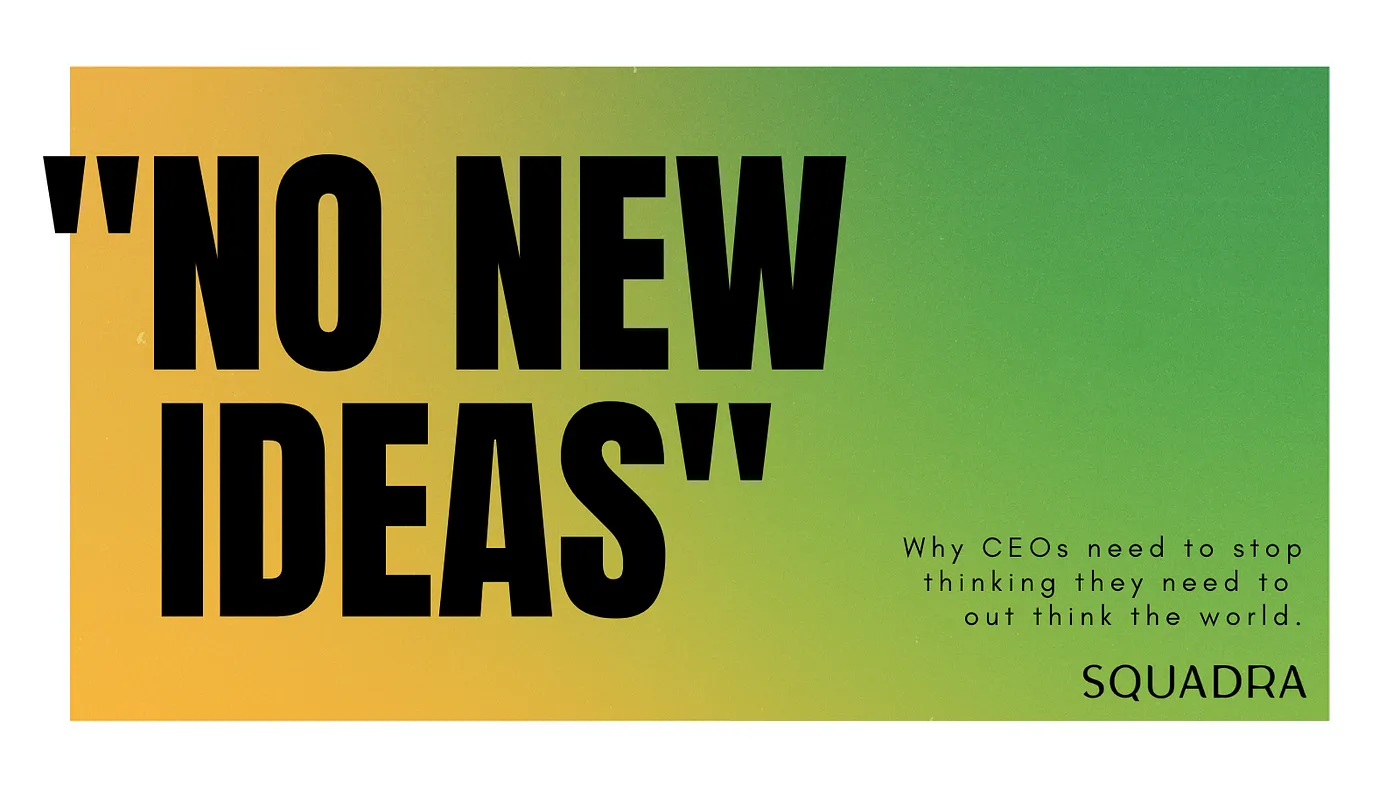My challenge to entrepreneurs is this: stop thinking up new ideas, start executing on your existing ones, and stay focused until you achieve your goals.
There’s an old investing adage that the idea is worth 10% and the rest is execution.
Too often we see leaders spending 80% of their time and energy in that 10%, constantly ideating and being creative and believing that every new idea will translate to value. Intellectual, smart CEOs have this weakness — they think they’re going to outthink the world. We see CEOs who are continually ideating and never move to pure execution. As soon as your team recognizes that that’s the pattern, they slow down because they don’t want to waste time. It tells them that if they don’t achieve what they need to execute, they can just ideate something new, a really dangerous trend. That’s why we sometimes tell our CEO’s, “no new ideas.”
There’s a cost to every new idea. Each idea comes with a degree of learning, teaching, iterating, exploring, stumbling, refining, distraction. There’s the opportunity cost of the time and energy you’re taking away from earlier ideas. If a CEO is bringing a new idea to the team every day, they are overwhelming, distracting, and diluting the overall capacity of that team.
That’s not to say that there aren’t moments for thinking big. But companies fail when they don’t know how to shift from being creative to getting focused, or how to move from visionary to tactical. When you don’t understand when to transition from thinking to doing, you end up doing the wrong things at the wrong time. The objective is to figure out the strategy and commit to it. Value creation only happens in the execution. You must keep yourself accountable to that strategy and the execution. That’s why we say we invest in the plan.
The company in our portfolio that always does the best job of ideating then executing is Instant Teams. There’s always one or two big things that they are working on in a given quarter, always something new they’ve come up with, and then always a majority of things they’re in pure execution mode on. At the end of the year, you look back and they got it all done. They’ve seen a bunch of different initiatives from ideation to execution. They hit and exceeded every goal in 2020, and that’s because they know how to set goals, execute plans, and focus.
Focus starts at the top, and needs to trickle down. I am a big fan of position players. When an organization is truly focused, each member of the team has a focus of their own — a single mission that drives their daily success and plagues them in semi-conscious sleep. It’s a dangerous mindset if you think you’re going to do twenty different things, it’s a dangerous mindset “wearing too many hats.” My old CTO at RedOwl, Paul Sanwald, taught me that everyone on the leadership team needed to be worried about *just 1* thing. As CEO, I got to worry about all of them 🤓 .
Of course everyone will have multiple responsibilities, multiple things they are a part of, but each person should have the one thing that they are responsible for in success and in failure. That’s what makes a company a high-performer. Companies like that will look back on 2021 and they will have a list of 15 big things they accomplished all the way through.
We hear CEOs ask, what is the one most important thing I need to do this quarter? Well, there are nine things, and they’re all the most important. Your company can achieve nine most important things because you have individuals to focus on each one — providing functional accountability to individual leaders.
That accountability includes oversight, motivation, decision-making support, and ensuring those leaders have the resources and support they need to get the job done. It also sometimes means a game-time decision to walk away from a particular effort when new information suggests it’s no longer an optimal path (which is its own big idea). I like to say that every Monday, for example, when we get the Squadra team together on our weekly sync, we have an opportunity to rebalance our efforts and our energy for the week — not wild deviations and changes — but small adjustments that affect how and where people spend their time. Save those big game-time decisions for very, very unique circumstances — and stay focused on your plan.

Comments